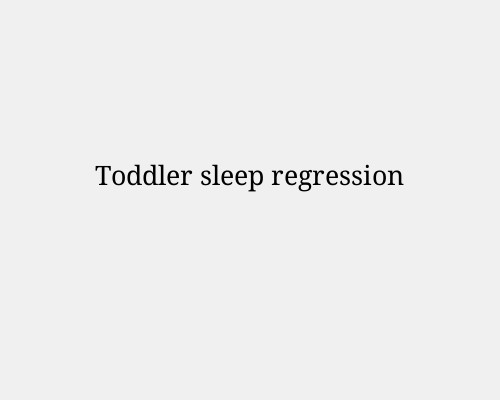
Toddler sleep regression is when a child who was sleeping well suddenly starts waking up more at night, resisting naps, or having trouble falling asleep. It’s common and usually temporary, but it can feel exhausting.
Why it happens (often between 18 months and 3 years):
Developmental leaps – new skills like walking, talking, or imaginative play can make their brains “too busy” for sleep.
Separation anxiety – toddlers become more aware when you’re gone.
Teething – molars coming in can disrupt rest.
Nap changes – dropping from two naps to one or shortening naps.
New fears – like the dark or “monsters.”
Big life changes – new sibling, moving house, or starting with day care.
How to help:
Stick to a consistent routine – bedtime rituals like bath, story, and cuddle signal it’s time to wind down.
Adjust naps – too much or too little daytime sleep can affect night sleep.
Offer comfort – short, calm reassurance if they wake, without turning it into playtime.
Keep nights dark and quiet – minimal talking or light so they learn night is for sleeping.
Encourage physical activity – plenty of play in the day helps tire them out.
Address fears – use a nightlight or comfort object if needed.
Be patient – regressions often last 2–6 weeks.
If the regression lasts longer than 6–8 weeks, is paired with snoring, pauses in breathing, or extreme restlessness, it’s worth checking with a paediatrician to rule out medical causes.